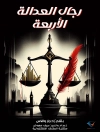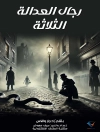In ‘Bracebridge Hall, or The Humorists, ‘ Washington Irving artfully melds humor and nostalgia, presenting a rich tapestry of early 19th-century American life. Written in a light, conversational prose style, the book unfolds through a series of interconnected stories and vignettes that delve into the eccentricities of its characters, predominantly set in the idyllic fictional landscape of Bracebridge Hall. Irving’s keen observation of social customs and relationships captures the essence of the American Romantic era, as he weaves themes of leisure, society, and the pastoral ideal with an underlying critique of urbanization’s encroachment on rural life. The blend of wit and affectionate parody positions this work within the broader context of early American literature, emphasizing its satirical elements and charm. Washington Irving, often heralded as one of America’s first notable writers, was influenced by the changing landscape of early 19th-century America, characterized by rapid industrialization and shifting cultural values. Born in 1783, Irving’s experiences in both the burgeoning cities of America and his travels abroad enriched his understanding of human nature, which is vividly reflected in his portrayals of the diverse characters that inhabit Bracebridge Hall. His desire to capture the humor and humanity of everyday life motivated him to craft this delightful collection, showcasing his talent for storytelling. For readers seeking a delightful exploration of character and context, ‘Bracebridge Hall’ offers a charming glimpse into the past, replete with laughter and insight. Irving’s relatable characters and lighthearted anecdotes invite readers to reflect on their own societal observations, making this book an essential read for anyone interested in the foundations of American literature. A testament to Irving’s literary legacy, this work not only entertains but also provokes thought, ensuring its relevance across generations.
Tentang Penulis
Washington Irving (1783-1859) remains an eminent figure in American literature, commonly hailed as the father of American short stories. Best known for ‘The Legend of Sleepy Hollow’ and ‘Rip Van Winkle’, he showed a prowess in weaving narratives that blend folklore with early American rural life. In ‘Bracebridge Hall, or The Humorists’, a lesser-known but significant work, Irving explores English customs through a series of character sketches and interwoven stories. This collection reflects his satirical and sometimes idyllic portrayal of English country life, building on his adeptness at humor and keen social observation. Irving’s literary style exhibits a blend of romanticism with a distinctly American voice, noted for its eloquence, wit, and descriptive power. His work was seminal in the formation of American literary identity during the early 19th century, providing the New World with its own myths and contributing to the sense of an American culture distinct from its European roots. The legacy of Washington Irving endures, as he not only charmed his contemporaries but also left an indelible mark on the canon of American literature.












